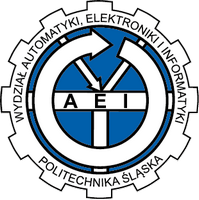Start - MGR EIT SPEC – Biomedical Electronics (EB)
Specialization: Biomedical Electronics (EB)
Electronics and Telecommunication, Master's degree (stationary)
Specialization characteristics
Education on the specialization consists of two streams. The first focuses on introducing methods for designing technical systems, based on biological and medical inspirations. These issues include: cybernetics, elements of artificial intelligence, fuzzy sets theory, approximate reasoning, expert systems, knowledge engineering, artificial neural networks and evolutionary algorithms. Graduates have knowledge how to design information processing systems not only in biology and medicine, but also economics, management or sociology.
The second stream involves learning the construction and principles of operation of the devices for patient diagnostics and therapy, such as ECG monitor, X-ray machine, medical laboratory equipment, or brain computer interfaces, as well as how to construct them. Particular attention is paid to introducing modern methods of biomedical signal and image processing, as well as learning about medical information systems. At the same time, the graduate has the technical knowledge to cope with a wide range of issues related to the application of technology in medicine, and the ability to cooperate with representatives of medical and biological sciences.
Student profile
The specialization is intended for students who are interested in gaining a broader knowledge on multidisciplinary solving of technical problems, and on development of approximate inference systems, as well as on application of artificial intelligence methods for data analysis.
The student of biomedical electronics gains a broad knowledge of computational intelligence and machine learning methods, of advanced signal processing algorithms, and on design and maintenance of electronic and information systems. Moreover, the student gains knowledge in practical applications of the latest advances in electronics and information technology.
Prerequisites
Basic knowledge on digital signal processing, programming skills in C language and MATLAB environment.
Topics
Within the specialization students acquire knowledge and skills in the following fields:
- Data analysis and processing.
- Construction and verification of machine learning systems for classification, regression and data clustering.
- Medical informatics.
- Computational intelligence methods for supporting medical diagnosis.
- Advanced methods of imaging diagnostics.
- Quality assessment and programming of medical imaging devices.
- Programming using popular languages like Python, R, Matlab, and LabVIEW.
- Design of electronic medical devices.
- Design of dedicated measurement systems.
- Human-machine communication systems.
- Artificial intelligence.
Specialization subjects
- X-ray and Isotope Machines
The aim of the course is to introduce the construction and principles of using X-ray machines for medical diagnostics. The course also covers the principles of quality assessment of X-ray imaging according to ISO/DIN standards and elements of practical dosimetry being necessary for the safe usage of diagnostic X-ray equipment.
- Biocybernetics
The aim of the course is to introduce the concept of a biocybernetic model which is a formal description of biological phenomena, the methodology of biocybernetic models design and to provide examples of various biocybernetic models (static, dynamic, with feedback).
- Image Diagnostics
The course aims to familiarize students with advanced methods of medical imaging, in particular with classical angiography and subtraction angiography (DSA), with methods of cross-sectional images reconstruction in computed tomography (CT), and nuclear magnetic resonance imaging (MRI). Ultrasound (US) imaging issues are also presented.
- Electromedical Measurement
The course aims to familiarize students with the issue of measurements in medicine, and their specificity (as the measurement object is a human being) in contrast to industrial measurements. Electromedical metrology links basics of metrology with knowledge of the medical diagnosis issues.
- Biological Models in Electronics
The aim of the course is to introduce the basic methods of modeling biological systems (including nervous system), modern methods of acquiring bioelectrical signals and the use of neuron models in the process of pattern recognition.
- Fundamentals of Knowledge Engineering
The aim of the course is to introduce the concept of knowledge engineering as a field of science and its basics with particular emphasis on the application of computational intelligence methods to construct knowledge-based systems, methods of data processing for knowledge discovery and providing decision support systems, mainly by using classifiers. During the course, students will be introduced to both classical methods of knowledge engineering, as well as to the latest developments in this field.
- Pattern Recognition
The goal of the course is to introduce classical and modern methods of preprocessing, classification and clustering of one-dimensional and multidimensional images, with particular emphasis on biomedical images.
- Cardiovascular Diagnostic Systems
The aim of the course is to introduce modern methods of cardiac signals analysis. New trends in ECG signal processing based on adaptive filtering and statistical methods of multivariate signal processing are presented.
- Information Technology in Medicine
The course introduces the basics of modern techniques to acquire the medical diagnostic data and its processing methods into useful information for the physician. Mastering the material will allow the students to be properly prepared for the use of complex systems of diagnostic medical equipment.
Graduate profile
Graduates of the specialization will be able to find employment in the following areas:
- Analyst of databases (internet data) using artificial intelligence methods.
- Knowledge engineering, with particular emphasis on machine learning.
- Designer of dedicated measurement systems.
- Designer of electronic and computerized medical equipment.
- Designer of intelligent signal and data processing systems.
A graduate of biomedical electronics specialization is a person prepared to design electronic devices and information systems, enriched with knowledge of how to apply these skills in other technical areas, including medical informatics and biomedical engineering. The ability to adapt to new areas also allows the graduate to pursue a career in fields such as telecommunications, industrial and domestic automation, automotive engineering, power engineering, and others.









